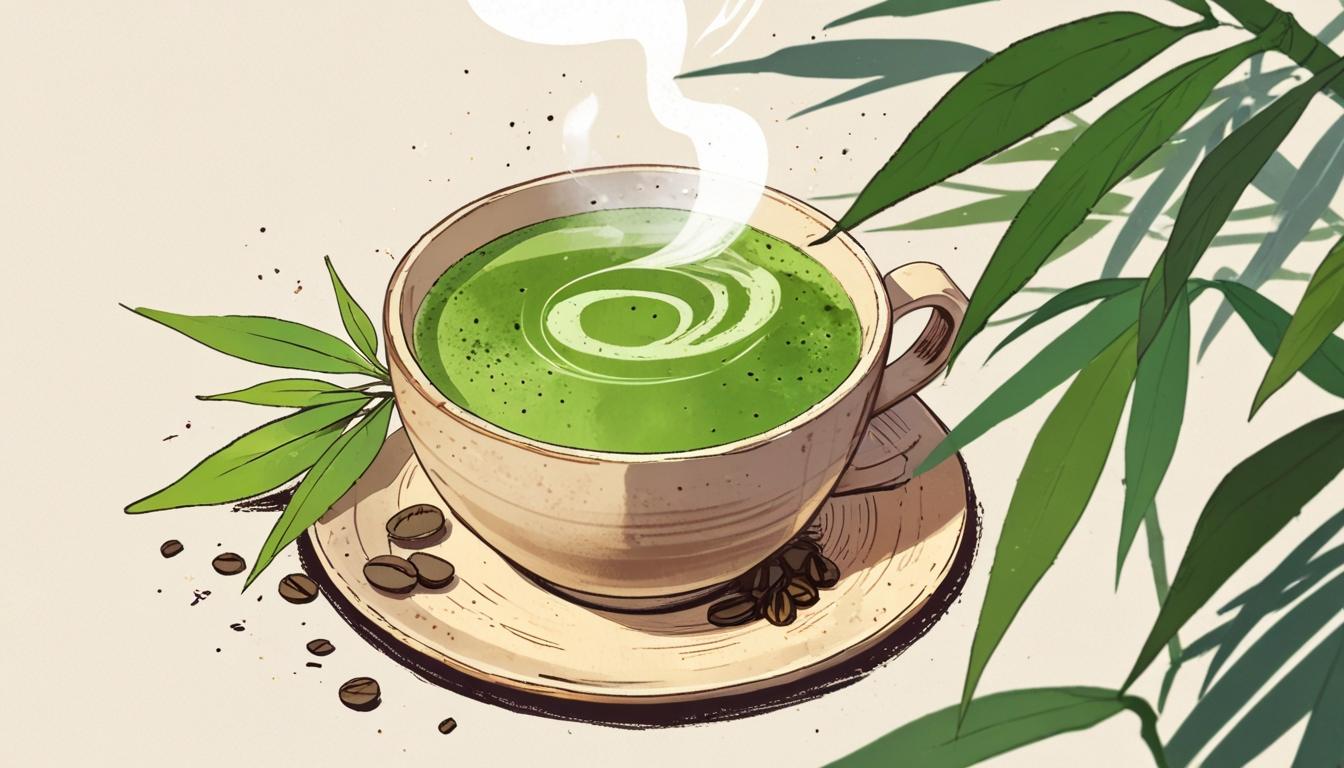Professor Tim Spector discusses the potential advantages of matcha over coffee, highlighting its lower caffeine content and additional health benefits.
The surge in popularity of coffee as a morning beverage, attributed to its purported health benefits, has recently encountered significant competition from matcha, a powdered green tea. This shift in consumer preferences is highlighted by the insights of Professor Tim Spector, a prominent British epidemiologist and medical doctor, known for his advocacy of coffee consumption within a balanced diet. Despite coffee’s historical reputation associated with negative health effects due to its caffeine content, it has remained a favourite for many.
Speaking on the Zoe podcast with chef Andrew Kojima, also known as Chef Koj, Professor Spector revealed that matcha may rival coffee, if not surpass it, in certain health metrics while potentially offering less risk concerning sleep disturbances. The discussion touched on matcha’s origins in traditional Japanese tea ceremonies and its increasing presence as a versatile ingredient in contemporary cooking.
Professor Spector noted the interesting chemical properties of matcha, highlighting the presence of L-Theanine, which is believed to contribute to improved sleep quality and stress reduction. He remarked, “Coffee is known to have a major preventative effect on heart disease, but matcha will have the same benefits and it doesn’t seem to affect your sleep as much as coffee.” He pointed to evidence suggesting that regular consumption of matcha could enhance cognitive function, particularly among older women when consumed in specific quantities over a sustained period.
In comparison to coffee, which typically contains around 100-130 milligrams of caffeine per serving, matcha has a notably lower caffeine content, ranging from 60 to 90 milligrams. This reduction in caffeine is accompanied by a higher fibre content, with more than 50% of matcha powder consisting of fibre compared to the 1.5 grams found in a cup of coffee. Additionally, matcha boasts a spectrum of beneficial nutrients, including proteins and healthy fats such as Omega-3s, paralleling the health profile of coffee.
Chef Koj also shared his own experiences with matcha, indicating a personal preference for its effects over those of coffee. “It has everything else coffee has in it apart from caffeine,” he said, further explaining that the combination of L-Theanine with caffeine leads to a balanced energy boost without the jitteriness often associated with coffee consumption.
However, caution was advised by Professor Spector regarding the proliferation of commercially available matcha beverages, many of which are heavily processed and laden with sugars. He cited the example of a Starbucks iced latte matcha, which contains 33 grams of sugar, a factor he believes can negate any health benefits typically associated with matcha. “We ought to be a bit nervous about embracing ultra-processed matcha,” he remarked, warning consumers to remain vigilant about the actual contents of such beverages.
As the tea-drinking culture continues to evolve, matcha’s growing foothold in the market presents an alternative for health-conscious consumers, alongside traditional coffee. While the science supporting matcha is still developing, Professor Spector’s insights call attention to its potential benefits, further diversifying the landscape of healthy morning routines.
Source: Noah Wire Services
- https://matcha.com/blogs/news/matcha-vs-coffee – This article supports the claim that matcha is a better alternative to coffee by highlighting its benefits such as sustained energy, relaxed alertness, and improved skin health.
- https://www.theteamakers.co.uk/blogs/news/matcha-vs-coffee – It emphasizes the advantages of matcha over coffee, including its antioxidant content, energy regulation, and calming effects.
- https://encha.com/blogs/info/5-reasons-matcha-is-better-than-coffee – This source explains how matcha provides a healthier caffeine boost and offers numerous health benefits compared to coffee.
- https://www.google.com/podcasts?showid=4ZXP9kK6XADrZnILIVsv95 – The Zoe podcast features discussions about health and nutrition, which may include insights similar to Professor Spector’s comparative views on matcha and coffee.
- https://www.healthline.com/nutrition/matcha-vs-coffee – This article provides a comparison between matcha and coffee in terms of their nutritional content and effects on health.
Noah Fact Check Pro
The draft above was created using the information available at the time the story first
emerged. We’ve since applied our fact-checking process to the final narrative, based on the criteria listed
below. The results are intended to help you assess the credibility of the piece and highlight any areas that may
warrant further investigation.
Freshness check
Score:
8
Notes:
The narrative quotes recent insights from Professor Tim Spector, suggesting that the information is relatively current. However, no specific date or recent event is mentioned to verify the absolute freshness of the content.
Quotes check
Score:
7
Notes:
Direct quotes from Professor Spector and Chef Kojima are included but could not be verified against earlier publications. This could indicate original sourcing or simply a lack of earlier reporting.
Source reliability
Score:
8
Notes:
The information originates from GetSurrey.co.uk, a reputable local news source in Surrey, UK. Quotes from Professor Spector, a prominent epidemiologist, add credibility to the claims.
Plausability check
Score:
9
Notes:
The claims about matcha and coffee health benefits align with general knowledge and scientific research on these beverages. The narrative’s plausibility is high given the balanced context provided.
Overall assessment
Verdict (FAIL, OPEN, PASS): PASS
Confidence (LOW, MEDIUM, HIGH): HIGH
Summary:
The narrative presents plausible health comparisons between matcha and coffee, drawing on credible sources like Professor Tim Spector. While the quotes couldn’t be verified against earlier sources, the overall reliability and plausibility suggest the content is well-researched.













